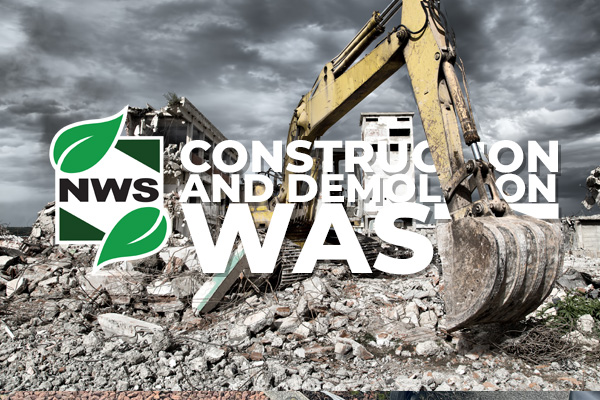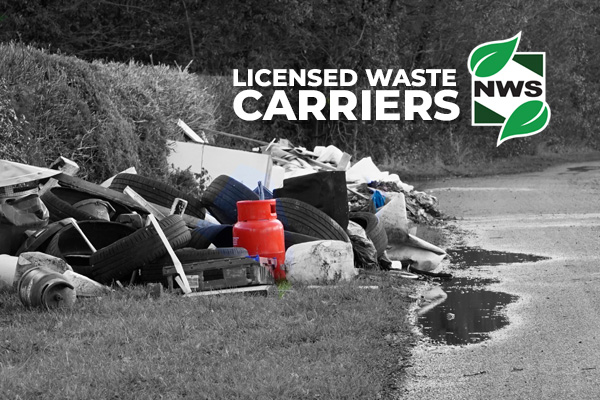Construction waste disposal in the UK is an area where making a positive change to the environment through better use of materials is crucial. The construction industry is one of the largest waste producers globally, and the UK is no exception. However, with the increasing focus on sustainability and environmental responsibility, business owners in the UK have the opportunity to lead the way in reducing construction waste and promoting a more circular economy. This article will explore the importance of construction waste management, recent statistics, and provide practical strategies and resources for business owners to improve their waste disposal practices.
The Impact of Construction Waste
The construction industry in the UK generates a significant amount of waste, making it imperative to address this issue. According to recent statistics from the UK government, the construction and demolition sector produced approximately 61.7 million tonnes of waste in 2018, accounting for around 35% of the total waste generated in the country. This waste not only poses environmental challenges but also represents a missed opportunity for resource recovery and cost savings.
Improper management of construction waste can lead to various negative impacts, including pollution of land, air, and water resources. Landfilling construction waste contributes to the emission of greenhouse gases, such as methane, which exacerbates climate change. Additionally, the extraction and production of virgin materials for construction projects contribute to deforestation, habitat destruction, and depletion of natural resources.
Strategies for Waste Reduction
To address the challenges posed by construction waste, business owners can adopt several strategies to minimize waste generation and promote sustainable practices:
a) Waste Reduction Plan: Developing a waste reduction plan is the first step towards effective waste management. This plan should include accurate material estimation, efficient procurement practices, and waste reduction targets. By carefully planning and monitoring the materials used in construction projects, businesses can minimize waste at the source.
b) Material Reuse and Recycling: Segregating and sorting waste on-site facilitates material reuse and recycling. Concrete, timber, metals, and plastics are examples of materials that can be recycled and used in new construction projects, reducing the need for virgin materials. Salvaging and reusing materials from demolition sites also contribute to waste reduction. Business owners should collaborate with waste management companies to ensure proper disposal and recycling of construction waste.
c) Sustainable Material Choices: Choosing sustainable materials is crucial for reducing the environmental impact of construction waste. Recycled materials, low-carbon concrete, and sustainable timber are viable alternatives that have a lower carbon footprint and help mitigate environmental damage. Business owners should consider the lifecycle impact of materials and seek alternatives that are environmentally friendly.
d) Waste Management Infrastructure: Adhering to waste management regulations and working with licensed waste management companies is essential for responsible waste disposal. Business owners should familiarise themselves with waste management guidelines and ensure proper documentation of waste disposal activities. Collaborating with waste management stakeholders and utilizing appropriate infrastructure can enhance waste management practices.
e) Collaborative Efforts: Collaboration between construction companies, suppliers, and waste management stakeholders is key to driving change. Sharing best practices, exchanging knowledge, and developing innovative solutions collectively can lead to a more sustainable construction industry. Business owners should actively participate in industry initiatives and engage with their peers to promote sustainable waste disposal practices.

In recent years, there has been a growing trend towards circular economy principles in the construction industry. The circular economy aims to minimize waste and maximize the value of resources by promoting reuse, recycling, and remanufacturing. Business owners can embrace this trend by adopting circular economy strategies, such as modular construction, designing for deconstruction, and incorporating recycled materials into their projects.
Recent Statistics and Trends
Recent statistics highlight the pressing need for improved construction waste management in the UK. According to a report by the Waste and Resources Action Programme (WRAP), the construction sector in the UK wasted an estimated £1.5 billion worth of materials in 2017. This staggering figure emphasises the financial implications of inefficient waste management.
Moreover, the report revealed that only 48% of construction waste in the UK is currently being recycled, suggesting ample room for improvement. The UK government has set a target to recycle 70% of construction and demolition waste by 2020, indicating the increasing focus on sustainable waste management practices.
Resources and Links for Further Information
To further aid business owners in improving their construction waste disposal practices, here are some useful resources and links:
- Construction Waste Management Guide by the UK Green Building Council: https://www.ukgbc.org/wp-content/uploads/2019/02/UK-GBC-Construction-Waste-Management-Guide.pdf (PDF)
- Waste and Resources Action Programme (WRAP): WRAP provides guidance, research, and tools to help businesses reduce waste and improve resource efficiency in the construction sector









